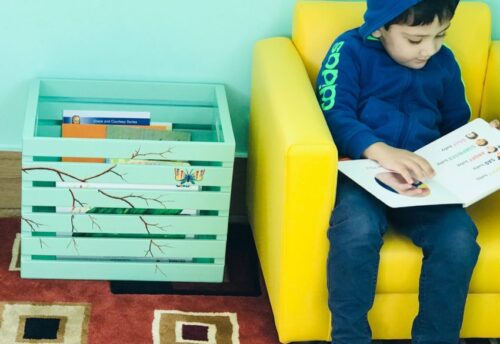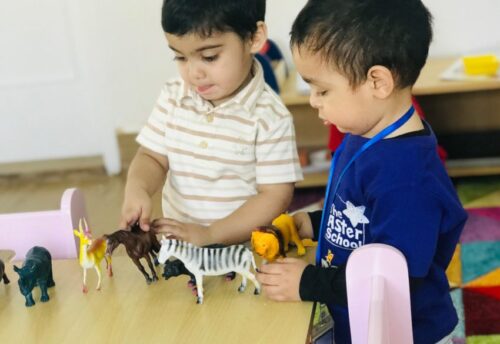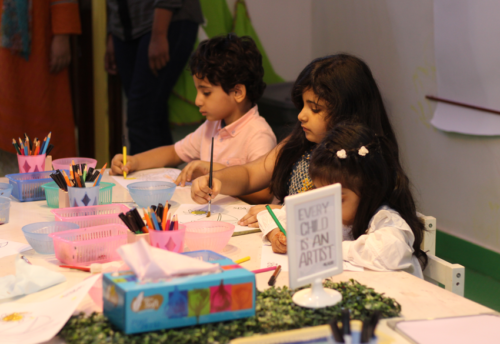
How to raise strong readers?
A simple guide to aid your child’s reading habit from the time of birth on wards!
In a world of digital distraction, it is very difficult to encourage your child to leave his or her digital gadget and be fond of reading books. These overlooked yet simple steps can take you a long way down the road based on the book called encouraging your child to read.
These are the age-appropriate steps that can be taken to ensure that your child is an avid reader. Remember when your child’s spoken language is good, he or she inevitably enjoys reading and writing.
Infancy (Birth to 18 months)
Babies learn language from their caretakers, who nurture them, laugh and smile with them. So remember to repeat words or stories, rhymes and be responsive to their simple acts (even their coos). Start with a story-telling and after all, she should spend time with the one she loves the most.
Parents must know that their child is absorbing all forms of communication, now it is time for execution with these four steps:
- Talk, talk and talk. Repeat nursery rhymes, sing with them, even playing peek-a-boo can help. Be caring and pay attention.
- Talk about the world around you and ask about the surrounding even while walking with the stroller, taking a bath, changing or when you are holding her. Tell her stories because she needs to hear your voice.
- Books with faces or specific objects can be helpful while reading to your 1 year old (You can use a lift-the-flap book)
- Share your thoughts and ideas with them, with a language you are most comfortable with. It can be your native language too.
Toddler/Preschooler (18 months to 3 years old)
Now that your child is a bit older. If they enjoy reading with you now, they will also enjoy later themselves too. Provide lots of opportunities to talk and listen, in order to build adequate literacy skills. You can do these four steps:
- Listen to your child and encourage her to say more. Ask questions and show interest because it can help her learn new words.
- Limit distractions such as phones, laptops or television. Read, play and talk to each other. Borrow books from friend, family or the local library.
- Set a daily reading routine such as before bedtime or before meal time.
- Give her paper and crayons where she can ‘write’ (Scribble) and encourage her to express her ideas.
Toddler (Age 3 to 5-year-olds)
Children who are writers even before they even learn to write, they scribble words, drawings and even attempt to write letters. This is the starting of literacy skills. These are the four steps you can follow:
- While reading encourage your child to talk and she can pretend read the part she knows. Ask her questions, and encourage her to say more, you will be surprised when she will start telling stories as you do.
- Point out at signs, talk about letters and sounds, maybe tell your child to find letters she knows.
- Play with words or sounds, sing rhymes and read with them. Words that have similar sounds such as “Dad and dance both start with the same sound ddd dad dd dancer”
- Have him or her to tell stories and write down what she says.
Human beings, even during infancy crave for interaction to form bonds. They want to communicate with those around them and form connections with their loved ones. Children develop good language skills and communication skills from the adults that care about them and nurture them. After all, when your child’s language skills are good he or she automatically becomes a reader for life. That is only possible if you spend time with your child and talk to them more often.
References:
https://www.gse.harvard.edu/news/uk/16/03/raising-strong-readers?fbclid=IwAR21hpU6NOKtnaky4x5fSIbL3G2jLFlo9PyOtQx5bpVOMFx4UoPRJ39-EQg




Leave a Reply